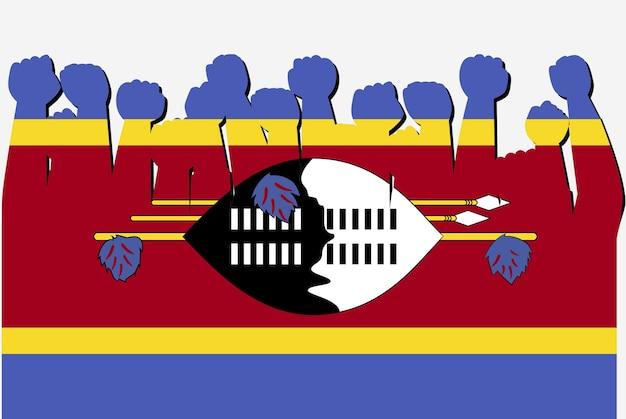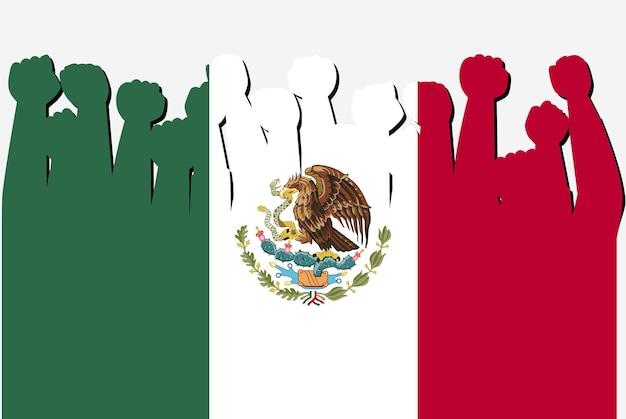Unlimited government systems have long been a topic of interest and concern for individuals passionate about political science and global affairs. In simple terms, an unlimited government refers to a system where leaders hold absolute power and control over their countries, lacking proper checks and balances. These governments often suppress individual freedoms, leading to oppressive conditions for their citizens.
In this blog post, we will explore some examples of countries that operate under unlimited governments. We will also delve into the concept of unlimited government itself, examining its characteristics and how it differs from other forms of governance. Additionally, we will touch upon the significance of limited government, particularly in the context of the United States Constitution, shedding light on its purpose and why it is highly valued.
So, let’s dive into the world of unlimited governments, understanding their implications and why they are crucial topics worthy of our attention.

Which Countries Showcase Unlimited Governments
Unlimited governments, also known as authoritarian or totalitarian regimes, exercise extensive control and power over their countries and citizens. While the concept of unlimited governments may seem intimidating, it’s not without its interesting aspects, and a closer look reveals some peculiar examples. Let’s explore a few countries that epitomize the concept of unlimited governments.
North Korea: The Hermit Kingdom
North Korea, officially known as the Democratic People’s Republic of Korea (DPRK), is often seen as one of the most notorious examples of an unlimited government. Led by the Kim dynasty, North Korea’s ruling family, the country is often shrouded in mystery and propaganda.
Under the principle of Juche, which advocates for self-reliance, the government exercises total control over every aspect of its citizens’ lives. The media is tightly regulated, access to the internet is limited, and citizens are subjected to relentless political indoctrination from a young age.
Saudi Arabia: Where Monarchy Reigns
Heading to the Middle East, we find Saudi Arabia – a country that combines absolute monarchy and Islamic religious law, known as Sharia. The House of Saud has ruled the country since its formation in 1932.
In Saudi Arabia, the power largely rests with the monarchy, and the royal family exerts considerable control over political, social, and economic affairs. While some reforms have been implemented in recent years, the government still maintains tight restrictions on freedom of expression and assembly.
Turkmenistan: The Land of the Eccentric
Located in Central Asia, Turkmenistan is often referred to as one of the most eccentric examples of an unlimited government. Ruled by President Gurbanguly Berdimuhamedov, the country has a distinct personality cult surrounding its leader.
Berdimuhamedov’s image permeates all aspects of Turkmen society, with statues and portraits adorning the streets. The government tightly controls the media, and the president’s whims and eccentricities often lead to unusual policies, such as banning black cars or implementing a national melon day.
Equatorial Guinea: The Iron Fist Rule
Moving to the west coast of Central Africa, Equatorial Guinea provides another example of an unlimited government. President Teodoro Obiang Nguema Mbasogo has held power since 1979, making him one of the longest-serving leaders in the world.
While Equatorial Guinea is rich in oil reserves, the benefits have not trickled down to the majority of its citizens. The government exercises strict control over the media, stifles political opposition, and is often accused of human rights abuses.
Conclusion: A Glimpse into Unlimited Governments
As we’ve seen, examples of unlimited governments exist across various regions of the world. The unique characteristics and idiosyncrasies of each regime shed light on the diversity of authoritarian rule. From the utmost control exerted by the North Korean government to the eccentricities of Turkmenistan’s leadership, these countries give us a glimpse into the complexities of unlimited governance.
While it’s important to understand and critique these governments, it’s equally important to recognize the resilience and aspirations of the people living under such regimes. As the world continues to evolve, it remains a collective endeavor to strive for more open and inclusive societies, where power is truly derived from the people themselves.

FAQ: Unlimited Governments and the US Constitution
Which Countries are Examples of Unlimited Governments
Unlimited governments, also known as authoritarian or totalitarian regimes, have extensive powers and control over the lives of their citizens. Some examples of countries with unlimited governments include North Korea, Saudi Arabia, and China. These governments often suppress individual freedoms and maintain tight control over political, economic, and social aspects of society.
Is a Dictatorship Limited or Unlimited
A dictatorship is typically considered an example of an unlimited government. In a dictatorship, power is concentrated in the hands of a single leader or a small group, allowing them to make decisions without checks or balances. The lack of accountability and control mechanisms often leads to the abuse of power and disregard for individual rights.
What is Unlimited Government
Unlimited government refers to a political system where the rulers have absolute power and authority. These governments often exhibit characteristics such as limited or no political opposition, restrictions on civil liberties, censorship, and a lack of transparency and accountability. Unlimited governments have the final say on all matters and can impose their will on the citizens without their consent.
What is Unique about the US Constitution
The United States Constitution is a remarkable document that sets the framework for the American system of government. It establishes a federal system with shared powers between the national government and state governments. One unique aspect of the US Constitution is its emphasis on individual rights and liberties, represented by the Bill of Rights. These rights, such as freedom of speech, religion, and the press, protect citizens from government overreach.
How is the Government Limited by the Constitution
The US Constitution imposes limits on governmental power through a system of checks and balances. The separation of powers between the three branches of government, executive, legislative, and judicial, prevents any one branch from becoming too dominant. Additionally, the Bill of Rights restricts the government from infringing upon individual freedoms, ensuring a balance between authority and citizens’ rights.
What are the Disadvantages of Limited Government
While limited government has numerous advantages, it’s essential to acknowledge potential drawbacks. One disadvantage is that a limited government may face challenges in responding quickly to crises or implementing significant changes. Additionally, a weak government may struggle with enforcing laws or maintaining order. Balancing limited government with effective administration is an ongoing challenge for any democratic system.
Why is Limited Government Important to the Constitution
Limited government is crucial to the Constitution because it protects individual liberties and prevents the consolidation of power. By establishing clear boundaries for governmental authority, the Constitution ensures that citizens’ rights are respected and that the government operates within defined limits. Limited government also encourages public participation, accountability, and prevents the abuse of power.
What is the Goal of the US Constitution
The US Constitution aims to establish a fair and just government that respects the rights and freedoms of all citizens. Its goal is to create a system of governance where power is balanced, laws are justly enforced, and individual liberties are protected. The Constitution represents the collective values and aspirations of the American people, promoting democracy, equality, and the pursuit of happiness for all.
Now that you have a better understanding of unlimited governments and the importance of limited government in the US Constitution, you can see how critical it is to maintain a system that protects individual freedoms while preventing the concentration of power. The US Constitution stands as a beacon of hope, providing a framework for democratic governance that continues to inspire nations around the world. Remember, a government of the people, by the people, and for the people is vital for a brighter future.
